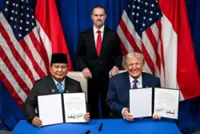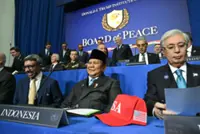JAKARTA: Twenty-seven years after Indonesia emerged from the shadow of authoritarian rule, the nation now stands at a crossroads, as it reaches what some pro-democracy advocates describe as “the end of political reform,” marked by the dismantling of democratic institutions and the return of authoritarian tendencies.
The fall of Soeharto and his New Order regime on May 21, 27 years ago, marked the beginning of the Reform era, a transformative period that ended the military’s roles in civilian and political affairs, strengthened democracy, promoted greater regional autonomy and fostered a freer press, among other reforms.





